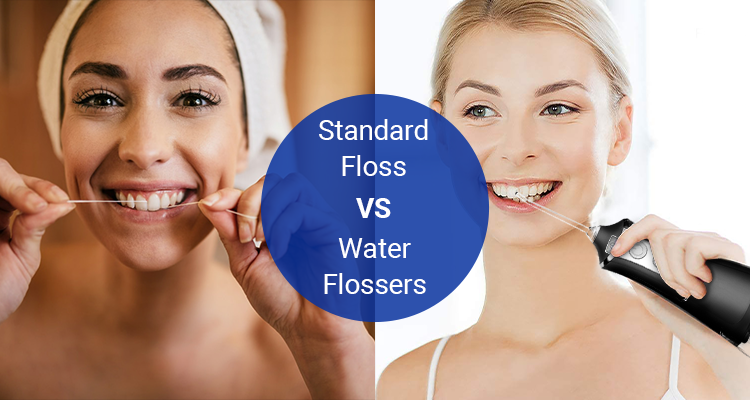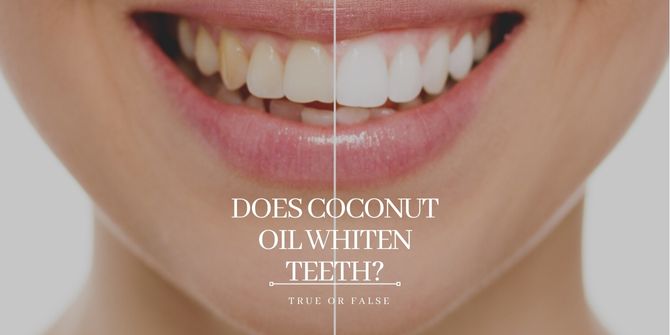In This Article
Water Flosser vs. Floss:Which is Better for You?
Apr 20, 2023

Maintaining oral health requires not only cleaning the surface of the teeth but, more importantly, cleaning the spaces between the teeth. Dental floss and water floss are good interdental cleaning products. Next, we will compare these two products to help you choose the one that is most suitable for you. Please continue to read!
Why Choose Floss or a Water Flosser?
Oral hygiene is an integral part of everyday life, and poor oral hygiene can lead to toothache, tooth decay, and other gum diseases. Studies have found that gum disease can increase the risk of heart disease, and bacteria left on the gums may also lead to the premature birth of babies. A twice-daily brushing habit removes most oral bacteria, but because the bristles of the toothbrush are too large, it's not enough to remove food, plaque, and bacteria trapped between the teeth. For this reason, the American Dental Association recommends flossing to help improve oral hygiene.
Benefits of using dental floss:
- Reduce the risk of tooth decay.
- Help remove food particles and plaque that a toothbrush can't reach.
- Can remove most of the bacteria in the mouth.
- Reduce the likelihood of sore gums and help prevent gum disease.
You'd better use dental floss every day to clean between teeth. The types of dental floss include traditional dental floss, water floss, dental floss sticks, and air floss. Next, let us focus on the difference between traditional dental floss and water floss.
Water Flosser vs. Floss
Floss
The history of floss dates further back than most people realize. In the 19th century, floss was first mentioned in 1819 by Levi Speer Parmley in one of his books. Half a century later, Asahel M. Shurtleff patented dental floss and designed the packaging. Today, floss comes in two main forms: one that comes in a tape measure and one that comes pre-cut in a plastic holder. Compared with the two, the latter is more convenient and hygienic.
In layman's terms, floss is an effective tool for cleaning between teeth and removing plaque that builds up where a toothbrush can't reach. Using dental floss can help reduce bleeding and gum disease.
advantage
Effectively clean the gap between the teeth: place the floss in the gap between the teeth and move back and forth, which can effectively remove the food and debris remaining in the gap between the teeth.
Easy to control: Wipe each tooth by pulling up and down, and you can adjust the strength and angle by yourself.
Cheap: the product is simple in structure and cheap in price.
disadvantage
Difficult to reach certain areas of the mouth: Teeth that are located deep in the mouth may not be easily accessible with floss.
May cause minor bleeding: If you floss too hard, your gums may bleed.
A water flosser, also known as an oral irrigator, was invented by a dentist and a hydraulic engineer. A water flosser uses a stream of pressurized water to rinse food and plaque between the teeth and the mouth. It is suitable for most people, especially those with braces and diabetes. It can help patients with braces clean their teeth more effectively than a toothbrush alone.
Follow these steps to use a flosser:
Fill the tank with warm water and place the flosser tip in your mouth.
Turn on the flosser, hold the handle at a 90-degree angle to the teeth, and spray water to clean the teeth.
Start from the back of the mouth to clean the front and back of each tooth in turn, focusing on the tops and the spaces between the teeth.
Empty excess water from the water tank after use.
advantage
- Easy to use: you only need to move the water floss between your teeth and interdental spaces. You don't need to turn it up and down, and you don't have to worry about hurting your gums if you use too much force.
- Clean the hard-to-reach areas in the mouth: because the front end of the water floss is slender, it can reach the inside of the mouth, which helps to clean the mouth more comprehensively.
shortcoming
- Inconvenient to carry: Since the water flosser needs power and water, it cannot be used anytime and anywhere. Moreover, the water floss is relatively large and takes up a lot of space, which is inconvenient for people traveling and on business trips.
- Expensive: Due to the high cost of production, water floss is not very friendly. It uses a stream of pressurized water to rinse food and plaque between the teeth and the mouth. It is suitable for most people, especially those with braces and diabetes. It can help patients with braces clean their teeth more effectively than a toothbrush alone.
While both water flossers and traditional floss have their benefits, it's clear that water flossers are the better option for achieving a deeper and more thorough clean. Not only are they gentler on your gums, but they also reach areas that floss can't. With their ease of use and convenience, water flossers have become a popular choice for those looking to improve their oral hygiene. So, if you're looking for a more effective way to floss, consider investing in a quality water flosser. Your gums will thank you!
Why Choose a Sodentist for Periodontal Care?
Sodentist offers a range of products designed to improve periodontal care. Sodentist water flossers are designed with advanced features, such as pulsating water pressure, to effectively clean between teeth and along the gum line, reducing the risk of gum disease and other periodontal issues. In addition, SODENTIST provides excellent customer service and support to ensure customers are satisfied with their purchase and have all the information they need to properly use and maintain their water flosser for optimal periodontal care.
In Conclusion
In conclusion, both water flossers and traditional floss have their advantages and disadvantages when it comes to oral hygiene. Ultimately, the choice between the two will depend on individual preferences, needs, and oral health concerns. It's best to consult with a dentist or periodontist to determine which option is better for your specific case. Regardless of which one you choose, the most important thing is to make flossing a regular part of your oral hygiene routine to maintain healthy teeth and gums.
Share this article














